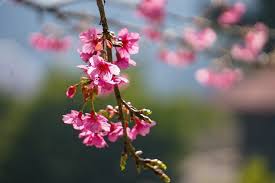
Numerology, the belief in the mystical significance of numbers, has played a pivotal role in shaping royal culture across various civilizations. From ancient dynasties to modern monarchies, rulers have long recognized the influence of numbers in establishing their authority, guiding decision-making, and ensuring the prosperity of their reigns. Royal culture is often steeped in symbolism, and numerology is an essential component of this symbolic language, offering insight into the divine and cosmic order that governs the universe.
In this article, we will explore the significance of numerology in royal culture, examining how various monarchies have utilized numbers to project power, maintain balance, and convey meaning in their architecture, rituals, and governance. We will delve into the historical context of numerology in royal societies, its influence on design and symbolism, and its ongoing relevance in modern royal practices.
1. The Historical Roots of Numerology in Royal Culture
The origins of numerology in royal culture can be traced back to some of the world’s earliest civilizations, where numbers were not merely used for counting or commerce but also for understanding the mysteries of the cosmos. In many ancient cultures, such as those in Egypt, Mesopotamia, and China, numbers were seen as representations of divine forces, and their significance extended far beyond mere mathematical calculations.
For ancient Egyptian pharaohs, numerology was deeply intertwined with the principles of cosmic order. Numbers like 3, 4, and 12 held special meaning, reflecting the harmony and balance of the universe. The Egyptians believed that the number 3 symbolized the divine, as seen in the Holy Trinity of their gods, while the number 12 represented completeness, as evidenced by the 12 hours of day and night and the 12 months of the year.
Similarly, the Babylonians, who were pioneers in the development of mathematics and astronomy, used numerology to understand celestial cycles and to guide their rulers. The number 7, for instance, was regarded as sacred, symbolizing divine favor and completeness. Babylonian kings often relied on astrology and numerology to make decisions about governance and warfare.
In China, numerology has played an integral role in royal culture for millennia. The ancient Chinese believed that numbers held both positive and negative energy, influencing everything from the timing of royal events to the selection of dates for important ceremonies. The number 8, for example, is considered particularly auspicious in Chinese culture, symbolizing wealth and prosperity. As a result, emperors often sought to align important decisions with numerological principles, ensuring the success of their reigns.
2. Numerology and Power in Royal Governance
For many monarchs, numerology was not only a matter of spiritual or symbolic significance but also a practical tool for reinforcing their authority. Rulers used numerology to assert their divine right to rule, consolidate their power, and communicate their sovereignty to their subjects. By aligning their reign with specific numbers, kings and queens sought to project a sense of destiny and purpose that resonated with their people.
a) The Number 7: Royal Favor and Divine Order
The number 7 has been one of the most powerful and symbolic numbers throughout history, especially in royal governance. In many cultures, the number 7 is associated with divine intervention, good fortune, and completeness. As such, it has been used by monarchs to convey their connection to the divine and to ensure the success of their rule.
In medieval European royal courts, the number 7 was often used to denote power and divine favor. Kings and queens would structure their reigns around this number, holding important events, coronations, and ceremonies on the seventh day of the month or during the seventh year of their reign. The number 7 also appeared in the design of royal palaces and castles, with seven towers or chambers symbolizing divine protection and the presence of sacred power.
The number 7 also had significance in biblical traditions, which heavily influenced the rulers of Europe. In the Bible, the number 7 appears repeatedly, symbolizing completeness and divine perfection. For example, the seven days of creation and the seven seals of the apocalypse are key references to the power and divine order of numbers. As a result, European monarchs often adopted the number 7 as a symbol of their god-given authority and the eternal nature of their rule.
b) The Number 3: Harmony, Balance, and Royal Triads
In many cultures, the number 3 is seen as a symbol of balance, harmony, and completeness. It is a number that signifies the union of opposites and the creation of a unified whole. In royal culture, the number 3 often represented the sacred balance between the king, the queen, and their heirs—the royal triad. This triad was seen as the core of the monarchy, with each member playing a vital role in maintaining order and stability within the kingdom.
The number 3 was particularly significant in the ancient Egyptian, Greek, and Roman empires. Egyptian pharaohs were often associated with the divine triad of Osiris, Isis, and Horus, representing death, life, and rebirth. This triad was not only a religious symbol but also a representation of the pharaoh’s authority, as the ruler was seen as the earthly embodiment of Horus.
In ancient Greece and Rome, the concept of the royal triad was similarly important, with kings and queens often invoking the number 3 to symbolize the unity of their rule. Roman emperors would refer to themselves as part of a divine triad, with their power being reinforced by their association with the gods. The imperial throne, too, was often designed with three key elements—symbols of wisdom, strength, and power—that reflected the three-fold nature of imperial authority.
c) The Number 12: The Zodiac and the Cycle of Time
The number 12 is another significant number in royal numerology, particularly because of its association with the cycle of time. In many cultures, the number 12 symbolizes completeness, order, and the cosmic cycle. In royal governance, the number 12 was often used to structure the reign of monarchs, marking important milestones and events in their rule.
One of the most notable associations of the number 12 is with the zodiac. In both Western and Eastern astrology, the zodiac is divided into 12 signs, each representing a specific period in the year. Monarchs often sought to align their reigns with auspicious astrological events, using the 12 signs of the zodiac to guide their actions and decisions. The use of the zodiac also provided rulers with a sense of cosmic order, reinforcing the idea that their rule was divinely ordained.
In medieval Europe, the number 12 had strong associations with the royal calendar, with key events such as royal marriages, coronations, and festivals often taking place in the twelfth month of the year. The use of the number 12 to mark the passage of time also reinforced the idea of a monarch’s divine right to rule for a set period, with the cycle of the seasons symbolizing the eternal nature of the monarchy.
3. Numerology and Architecture: Designing Royal Spaces with Cosmic Harmony
The influence of numerology is also evident in the design of royal buildings and spaces. Royal architects and designers used numerological principles to create environments that were not only aesthetically pleasing but also spiritually harmonious. By incorporating significant numbers into the layout and structure of royal palaces, temples, and public buildings, rulers sought to ensure the success and prosperity of their reign.
a) The Use of Sacred Numbers in Architecture
Many royal palaces and temples are designed with sacred numbers in mind. The number 3, for example, is often reflected in the layout of rooms, halls, and chambers, creating a sense of balance and unity. The number 7 is similarly used in the construction of towers, staircases, and chambers, where the placement of seven elements symbolizes divine protection and favor.
In ancient Egypt, the layout of the Great Pyramid of Giza was based on numerological principles, with the number 3 playing a central role in its design. The three main chambers of the pyramid were aligned with the stars and the cycles of the sun, creating a sacred space where the king could join the gods in the afterlife. Similarly, many medieval European castles and cathedrals were constructed with the number 7 in mind, with seven towers or seven arches symbolizing the divine favor of the monarch.
b) The Role of the Royal Court and Symbolic Spaces
In addition to the architectural design of royal buildings, numerology also plays a significant role in the organization of royal courts and the layout of ceremonial spaces. For example, the royal throne room is often designed to reflect the number 3, with three key elements—the throne, the ruler, and the people—symbolizing the harmonious balance of power. Similarly, royal processions and events are often structured around auspicious numbers, such as 12, to ensure that the ruler’s actions align with cosmic order.
4. Numerology in Royal Rituals and Ceremonies
Numerology plays an important role in royal rituals and ceremonies, from coronations to royal weddings. The selection of dates for these significant events is often guided by numerological principles, ensuring that they occur during times of cosmic alignment and divine favor. Monarchs have long relied on numerology to select auspicious dates and times for important rituals, reinforcing the belief that their reign is divinely ordained.
a) Selecting Dates for Coronations and Royal Celebrations
Throughout history, coronations and royal celebrations have often been scheduled based on the numerological significance of certain dates. For example, European monarchs would often choose the seventh or twelfth day of the month for their coronations, aligning with the sacred symbolism of these numbers. In other cultures, such as in China, the emperor would consult astrological and numerological experts to determine the most auspicious day for royal ceremonies, ensuring that the event would be blessed with divine favor.
b) The Role of Numbers in Ritualistic Symbolism
Numbers are also important in royal rituals, where they are used to symbolize different aspects of the monarchy’s power and divine connection. The number 3 is frequently seen in rituals that involve the king, queen, and their heirs, symbolizing the unity of the royal family. The number 7, on the other hand, is often associated with the invocation of divine favor and protection during royal ceremonies.
Conclusion: The Enduring Power of Numerology in Royal Culture
Numerology has played a profound role in royal culture throughout history, influencing everything from governance and architecture to rituals and ceremonies. By aligning their reigns with sacred numbers, monarchs have sought to project power, reinforce their divine right to rule, and create a sense of cosmic harmony within their realms. The significance of numbers like 3, 7, and 12 continues to resonate in royal traditions, offering insight into the enduring connection between the monarchy and the cosmos.
As we move into the modern era, numerology continues to play a role in the royal culture of many countries, influencing both the symbolism and the ceremonial practices of monarchies around the world. Whether through the design of royal buildings or the scheduling of important events, the mystical power of numbers remains a timeless and powerful force in shaping the legacy of the monarchy.









